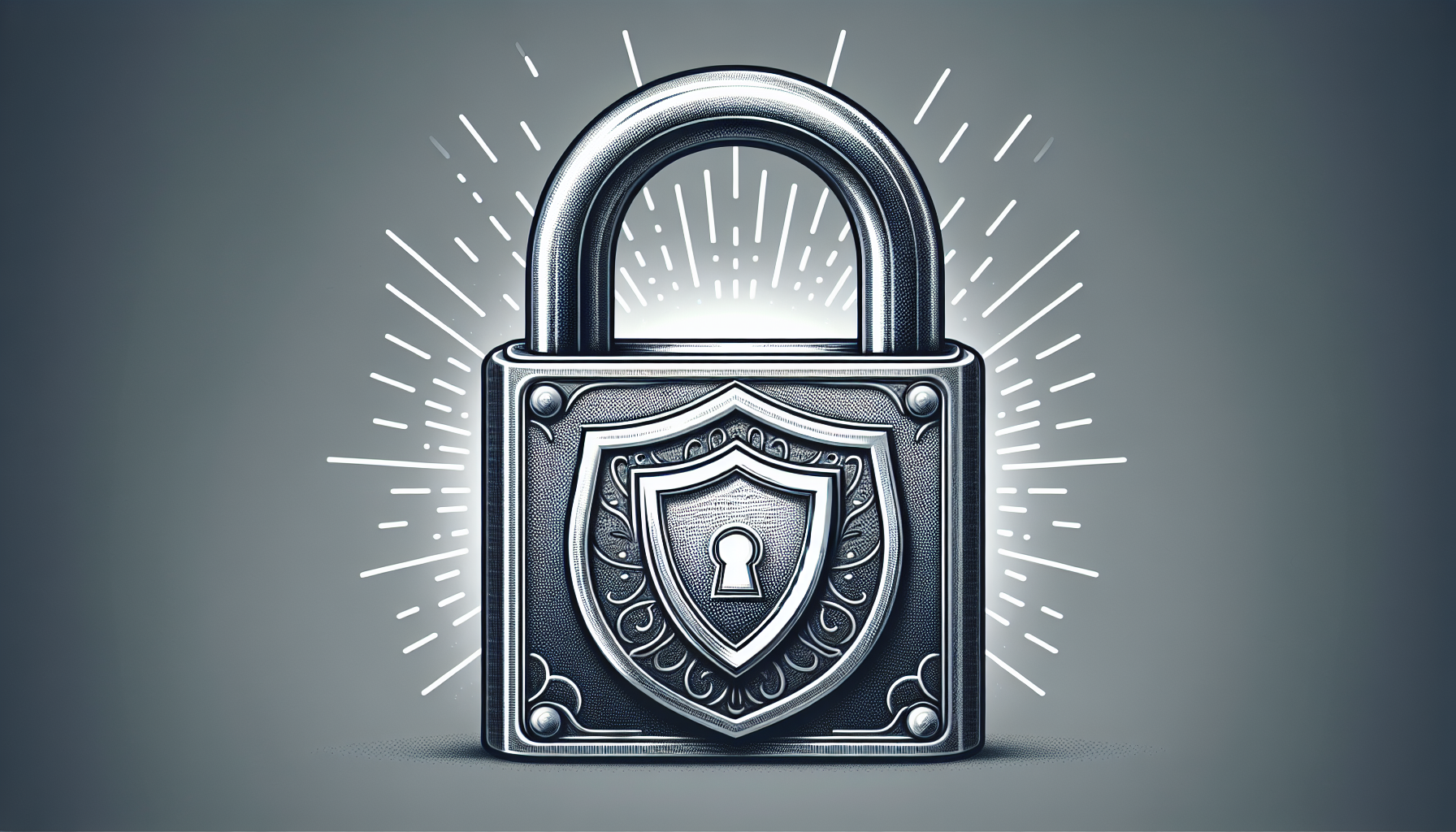What Is A Secure Socket Layer (SSL) And Why Is It Essential For Website Security?
Introduction
You may have heard of the term “Secure Socket Layer” or SSL in relation to website security, but what exactly does it mean, and why is it so important for protecting your online data? In this article, we will break down the basics of SSL encryption and delve into why it is essential for ensuring the security of your website.
Defining Secure Socket Layer (SSL)
SSL stands for Secure Socket Layer, which is a standard security protocol used to establish an encrypted link between a web server and a browser. This link ensures that all data passed between the web server and browsers remain private and secure. In simpler terms, SSL is like a protective barrier that prevents unauthorized access to sensitive information transmitted over the internet.
Importance of SSL in Website Security
Now, you may wonder why SSL is crucial for website security. The answer lies in the protection it offers to both you and your website visitors. By encrypting data transferred between a user’s browser and your server, SSL ensures that sensitive information such as login credentials, credit card details, and personal data are safe from cybercriminals looking to intercept and exploit this information.
How Does SSL Work?
Understanding the inner workings of SSL can provide more insight into its importance for website security. Let’s take a closer look at the key components of SSL encryption:
SSL Certificate
At the core of SSL encryption is the SSL certificate. This digital certificate is issued by a trusted third-party entity known as a Certificate Authority (CA). When a website installs an SSL certificate, it enables secure connections between the server and the user’s browser. The SSL certificate contains the website’s public key, information about the website owner, and the digital signature of the CA.
Encryption Process
When a user visits a website with an SSL certificate, their browser initiates a secure connection by requesting the server’s SSL certificate. The server then sends back its SSL certificate, along with its public key. The browser verifies the SSL certificate’s authenticity and uses the server’s public key to encrypt data before sending it over the internet. The encrypted data can only be decrypted by the server’s private key, ensuring confidentiality and integrity.
Handshake Protocol
The SSL handshake protocol is responsible for establishing a secure connection between the server and the browser. During the handshake, the server and browser agree on encryption algorithms, exchange encryption keys, and verify the authenticity of the SSL certificate. This process ensures that the data transmitted between the two parties is encrypted and secure.
Benefits of Using SSL for Your Website
Implementing SSL encryption on your website offers a wide range of benefits that extend beyond just security. Let’s explore some of the advantages that SSL can bring to your online presence:
Enhanced Security
The most obvious benefit of SSL is enhanced security for your website and its users. By encrypting data exchanged between the server and browsers, SSL prevents unauthorized access and eavesdropping. This protection is especially crucial for websites that handle sensitive information like personal details, login credentials, and payment data.
Trust and Credibility
Websites with SSL certificates display a padlock icon and use the HTTPS protocol in the URL, indicating a secure connection. These visual cues reassure users that their data is protected, building trust and credibility in your website. Additionally, having an SSL certificate is a signal to search engines that your website is secure, potentially boosting your SEO rankings.
Regulatory Compliance
Many industries have regulations requiring the protection of sensitive data transmitted over the internet. By implementing SSL encryption, your website can comply with these standards and avoid potential penalties for non-compliance. Whether it’s GDPR in Europe or HIPAA in healthcare, SSL is essential for meeting data security regulations.
Improved Performance
Contrary to popular belief, SSL encryption can actually improve website performance. Modern SSL certificates come with optimization features that enhance load times, reduce latency, and improve overall user experience. By securing your website with SSL, you can provide a faster and smoother browsing experience for your visitors.
SEO Benefits
Search engines like Google prioritize websites with SSL certificates in their search results. By securing your website with SSL encryption, you can potentially improve your search engine rankings and attract more organic traffic. SSL is not only a security measure but also an SEO tactic to enhance your online visibility.
Types of SSL Certificates
SSL certificates come in various types, each offering different levels of security and validation. Understanding the differences between these certificates can help you choose the right one for your website. Here are the common types of SSL certificates:
Domain Validated (DV) SSL Certificate
Domain Validated SSL certificates are the most basic type of SSL certificate and are issued after verifying domain ownership. These certificates encrypt data but do not validate the identity of the website owner. DV SSL certificates are ideal for personal websites or small businesses looking to secure their domains.
Organization Validated (OV) SSL Certificate
Organization Validated SSL certificates offer a higher level of validation by verifying not only domain ownership but also the legitimacy of the business. Websites with OV SSL certificates display verified company information in the certificate details, instilling greater trust in users. OV certificates are suitable for e-commerce websites and organizations that handle sensitive customer data.
Extended Validation (EV) SSL Certificate
Extended Validation SSL certificates provide the highest level of validation and security. In addition to domain ownership and business verification, EV certificates undergo a strict validation process, including legal checks and verification of physical existence. Websites with EV SSL certificates display a green address bar in the browser, signaling maximum security and trustworthiness. EV certificates are recommended for large enterprises, financial institutions, and e-commerce platforms.
Wildcard SSL Certificate
Wildcard SSL certificates secure a primary domain and an unlimited number of subdomains under it. This flexibility makes Wildcard certificates cost-effective and efficient for websites with multiple subdomains. Whether it’s blog.domain.com, shop.domain.com, or mail.domain.com, a Wildcard SSL certificate can secure them all under one umbrella.
Multi-Domain SSL Certificate
Multi-Domain SSL certificates, also known as Subject Alternative Name (SAN) certificates, allow you to secure multiple domains and subdomains with one certificate. This convenience is ideal for businesses with diverse online presence, such as e-commerce platforms, SaaS providers, and agencies managing multiple client websites. With a Multi-Domain SSL certificate, you can simplify certificate management and secure all your domains under one umbrella.
Self-Signed SSL Certificate
Self-signed SSL certificates are generated by the website owner without third-party validation. While self-signed certificates can provide encryption, they are not trusted by browsers and display security warnings to users. Self-signed certificates are suitable for development environments or internal networks but not recommended for production websites or customer-facing applications.
How to Install SSL on Your Website
Now that you understand the importance of SSL and the types of SSL certificates available, you may be wondering how to install SSL on your website. The process may vary depending on your web hosting provider, but here are the general steps to install SSL on your website:
Step 1: Choose an SSL Certificate
Select the type of SSL certificate that best suits your website’s security needs. Consider factors like the level of validation, number of domains, and compatibility with your hosting environment. You can purchase SSL certificates from reputable providers like Comodo, Sectigo, Let’s Encrypt, and DigiCert.
Step 2: Generate a Certificate Signing Request (CSR)
Before obtaining an SSL certificate, you need to create a Certificate Signing Request (CSR) from your web server. The CSR contains your website’s public key and domain information, which is required for the SSL certificate issuance process. Most web hosting control panels have an option to generate a CSR for your domain.
Step 3: Purchase and Install the SSL Certificate
Once you have generated a CSR, you can purchase an SSL certificate from a trusted provider. After completing the purchase, you will receive the SSL certificate files, including the SSL certificate, intermediate certificates, and private key. Upload these files to your web server and configure SSL settings in your hosting control panel.
Step 4: Configure SSL on Your Website
After installing the SSL certificate, you need to configure your website to use HTTPS protocol. Update your website URLs to HTTPS, redirect HTTP traffic to HTTPS, and ensure that SSL is enabled for all pages and resources. Test the SSL configuration using online tools like SSL Labs to check for any security vulnerabilities.
Step 5: Renew and Maintain Your SSL Certificate
SSL certificates have an expiration date, typically ranging from 1 to 2 years. Set up automatic renewal alerts or reminders to ensure your SSL certificate remains valid. Regularly monitor your SSL configuration, update certificates when necessary, and stay informed about the latest security best practices to maintain a secure web environment.
Conclusion
In conclusion, Secure Socket Layer (SSL) encryption plays a crucial role in safeguarding your website and protecting the sensitive data of your users. By implementing SSL on your website, you can enhance security, build trust with your visitors, and comply with industry regulations. Whether you run a personal blog, an e-commerce platform, or a corporate website, SSL is essential for ensuring a secure and reliable online presence. Stay informed about the latest SSL trends and best practices to stay ahead of cyber threats and provide a safe browsing experience for your audience. Remember, when it comes to website security, SSL is not just an option but a necessity for safeguarding your digital assets.











